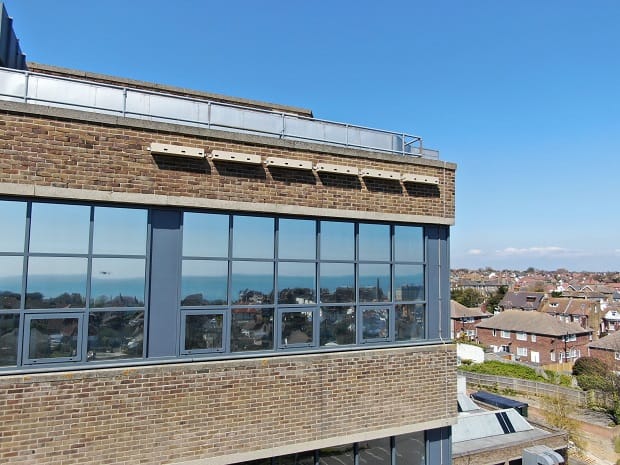
EKC Group’s Broadstairs College has joined forces with Thanet wildlife conservationist Nik Mitchell and RSPB’s Thanet group, to install seven new swift nest boxes in a mission to provide a lifeline to the endangered bird.
Installed on the side of one of the college’s tallest buildings the boxes, which each have three holes and can -in total- accommodate 21 pairs, mark a major step in establishing Kent’s first artificial swift colony.
Known for flying extraordinary distances of up to 500 miles per day whilst on migration, swifts spend almost all of their life on the wing and are amazing aerialists, and only come to land when nesting.
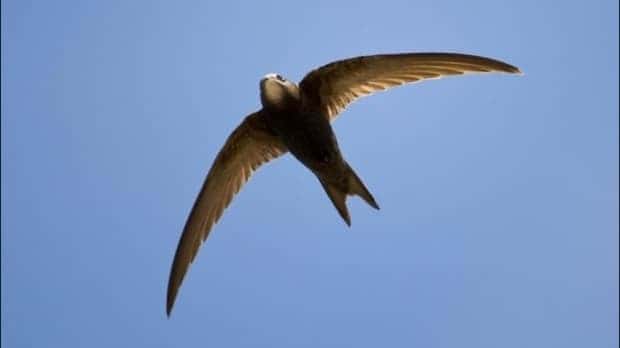
Years of progressive local habit loss, building developments, and home renovations, has meant a decline in established nest sites in Kent – a trend this new initiative hopes to address.
Swifts like to nest under the eaves of a building but these are now often blocked off by the addition of fascia boards.
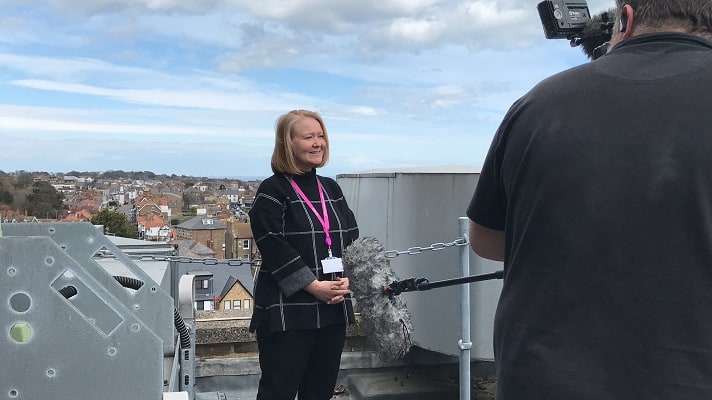
Assistant Principal of Broadstairs College, Sarah-Jayne Benfield, said: “We are really proud to be part of the ongoing swift conservation project in Thanet.
“Working with Nik and RSPB’s Thanet Local Group, we have an exciting opportunity to engage with our students and our local community to raise awareness of these incredible birds and the importance of wildlife conservation.”
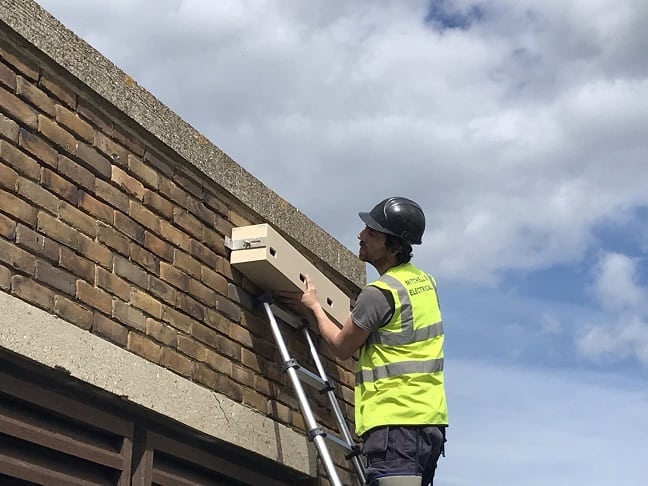
Nik, who installed the boxes, added: “Swifts are incredibly loyal to a nest site, with the colony returning time and time again to the same spot. When an established nest location is blocked up or removed, it has a detrimental impact on the swifts’ wellbeing and population levels. Sadly, we’ve lost over half of our swifts in the last 20 years.
“The new nest site at Broadstairs College is in a brilliant location and provides a fantastic opportunity to help safeguard the future of swifts in Kent.”
It is hoped the new site will become home to first-time nesters when the young adult swifts return from their fledgeling flight in two to three years’ time.
Swifts arrive in the UK from Africa every May after 10 months non-stop flying – sleeping, eating and mating on the wing.
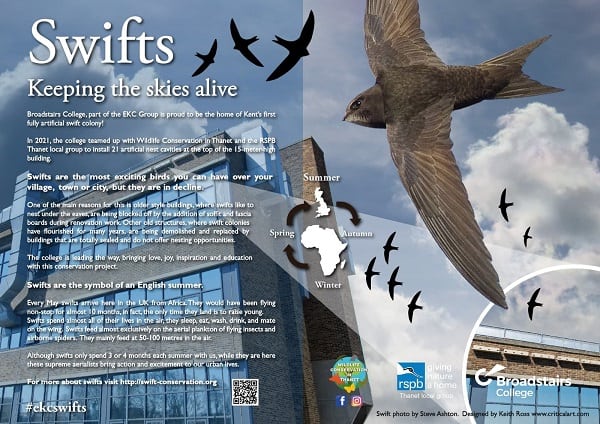
Alongside the boxes, information plaques including facts about swifts, will be installed on the college’s premises for students, staff and visitors to learn more about the initiative.

